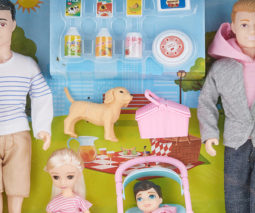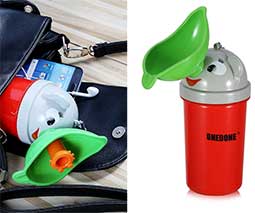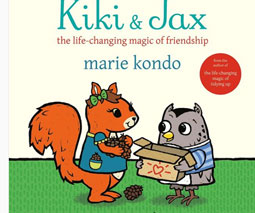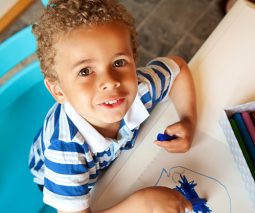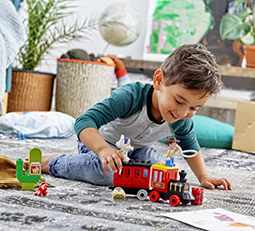Why child-led play is the most important work your kids will do each day
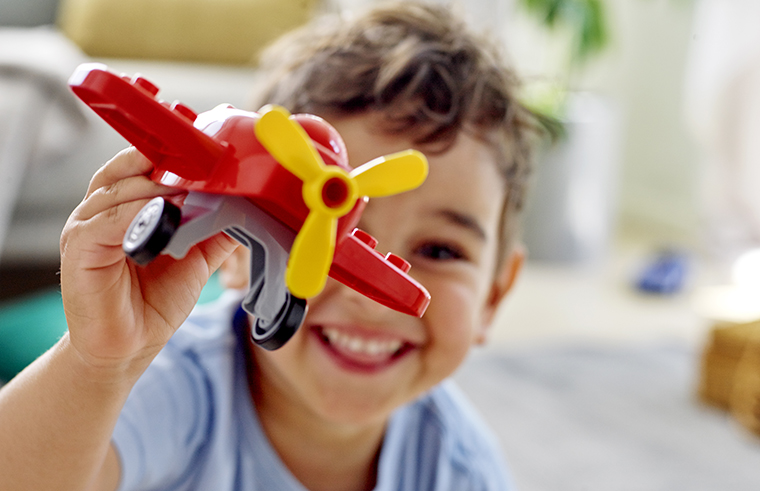
If you want to give your kids an early step up on life’s success ladder, you may be surprised to learn that the best path forward is not all about violin and dance lessons.
In fact, Dr Laura Jana, paediatrician and author of The Toddler Brain, says that letting your child play and letting them decide how to play is actually the biggest key in setting your child up for life and you can start early.
“Play is the work of childhood”
We need to rethink what we mean when we say ‘learning’ argues Laura. We need to stop thinking that learning can only happen in formal settings, where instruction is given and lessons are learned.
“What we know is that a lot of learning, including musical instruments or other skills, can be learned in the setting of play and creative free play even.”
Creative free play – also known as child-led play – describes play where the child follows their own play urges without direction or intervention.
“Kids just get to play, they get to explore. That’s really how kids figure out how the world works; not just the things they’re playing with, but playing with other children and figuring out dynamics about playing with other kids,” Laura explains.
Listen to Dr Laura Jana on Feed Play Love:
Consider the toys your kids have to play with
Of course, life can’t be only about creative free play – Laura does suggest though that parents avoid offering activities and toys that are too prescriptive, where there are only very limited play options available.
“Toys, unfortunately, become more and more prescriptive – you’re supposed to use them one very specific way and that’s the only way. I tell parents to look for open-ended toys that you can do different things with and to be creative in how you approach using them.”
A great example of an open-ended toy is LEGO, where there are the options to follow the instructions and make what’s on the box or to ignore the instructions and build your own creation.
Laura explains why she’s such a fan of these building blocks: “There is value in being able to follow complex instructions and build a LEGO structure – that is one skill and that’s an important skill. But what LEGO is famous for is having blocks that you can create anything you want.
And as parents, we can encourage that open-ended play by asking questions and encouraging our kids to think creatively. The trick is not to get so involved in the play that we take over the process!
What child-led play really teaches our kids
There are definitely lessons that result from child-led play that are hard to learn elsewhere.
“In The Toddler Brain, I defined seven really important skills that all children will need to succeed and play in today’s world,” Laura says. “And the [last] of these skills is what I call ‘what-if’ skills, and ‘what-if’ skills are a child being able to imagine something that’s not right in front of them. This is what can you imagine, and there’s actually a different part of the brain engaged in that type of creative imaginative thinking.”
There are other bigger picture benefits too.
“In a world where everything has gotten to be more globally complex and rapidly changing, kids need to be good at adapting and looking around them and taking in new information and adjusting accordingly.” Laura says.
The extra benefits of solo play
There is nothing sweeter than secretly watching your child sitting on the floor pushing cars around, or enjoying a tea party with their teddy bear friends. And if you listen closely, you’ll often hear them verbalising their imaginative play too.
Laura explains what’s going on in this type of solo play: “One of the things that children learn very early on is how to understand other people’s emotions and perspectives. That’s part of the skill of learning to play nice with others. So when a child sits and [makes] a car noise when they’re playing with a car, they’re basically trying to put themselves in the position of whoever or whatever they’re playing with.”
Ultimately they are developing the ability to take on another person’s perspective which promotes empathy and compassion. Both traits that will help them be excellent human beings through life.
This post is sponsored by LEGO DUPLO. The fun way to create and connect.
